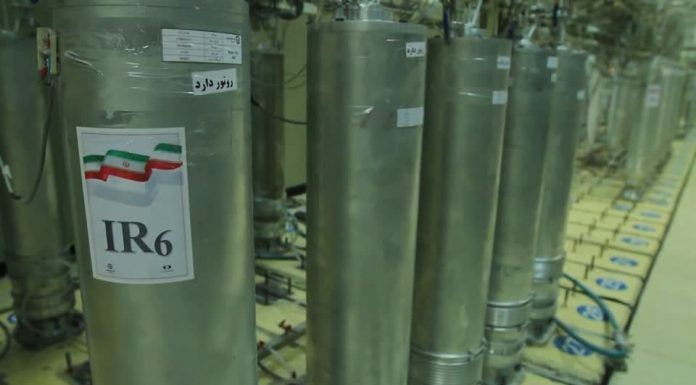By Parisa Hafezi
DUBAI, Nov 6 (Reuters) – Iran has started to inject uranium gas into centrifuges at its underground Fordow nuclear facility, state TV reported on Wednesday, further distancing itself from a 2015 nuclear deal between Tehran and world powers that curbed its atomic work.
The deal bans nuclear material from Fordow and, with the injection of uranium gas into its centrifuges, the facility will move from its permitted status of research plant to become an active nuclear site.
“With the presence of inspectors from International Atomic Energy Agency, Iran started injecting (uranium) gas into centrifuges in Fordow,” TV reported.
Iranian President Hassan Rouhani, architect of the deal, blamed the United States for Iran’s rolling back of its nuclear commitments, saying Fordow would soon fully resume uranium enrichment work.
“Iran’s 4th step in reducing its commitments under the JCPOA (the 2015 nuclear deal) by injecting gas to 1,044 centrifuges begins today. Thanks to U.S. policy and its allies, Fordow will soon be back to full operation,” Rouhani tweeted.
Iran agreed in 2015 to turn Fordow into a “nuclear, physics and technology centre” where 1,044 centrifuges are used for purposes other than enrichment, such as producing stable isotopes, which have a variety of civil uses.
Last year, U.S. President Donald Trump exited the deal and said it was flawed in Iran’s favour. Washington has since renewed and intensified its sanctions, slashing Iran’s economically vital crude oil sales by more than 80%.
Responding to Washington’s “maximum pressure” policy, Iran has bypassed the restrictions of the deal step-by-step – including by breaching both its cap on stockpiled enriched uranium and on the level of enrichment.
“Iran has taken its fourth step to decrease its nuclear commitments to the deal in reaction to the increased U.S. pressure and inactivity of European parties to the deal to save it,” state TV added.
In Vienna, the IAEA, the U.N. nuclear watchdog, said its inspectors are on the ground in Iran and will report back on relevant activities.
Iranian authorities also said on Tuesday that Tehran will enrich uranium to 5% at Fordow, which will further complicate the chances of saving the accord, which European powers, Russia and the European Union have urged Iran to respect.
The agreement capped the level of purity to which Iran can enrich uranium at 3.67 percent – suitable for civilian power generation and far below the 90% threshold of nuclear weapons grade. Iran denies ever having aimed to develop a nuclear bomb.
Iran said on Monday it had accelerated enrichment by doubling the number of advanced IR-6 centrifuges in operation, adding that it was working on “a prototype called the IR-9, which works 50-times faster than the IR-1 centrifuges”.
The nuclear deal, under which international sanctions against Iran were lifted, was tailored to extend the time Iran would need to accumulate enough fissile material for a nuclear bomb – sometimes referred to as the “breakout time” – to about a year from 2-3 months.
Iran, which flatly denies seeking a nuclear bomb, has given another two-month deadline to Britain, France and Germany to salvage the deal. Leaving room for diplomacy, Tehran says talks are possible if Washington lifts all the sanctions and itself returns to the nuclear deal.
(Writing by Parisa Hafezi; editing by John Stonestreet, William Maclean)


